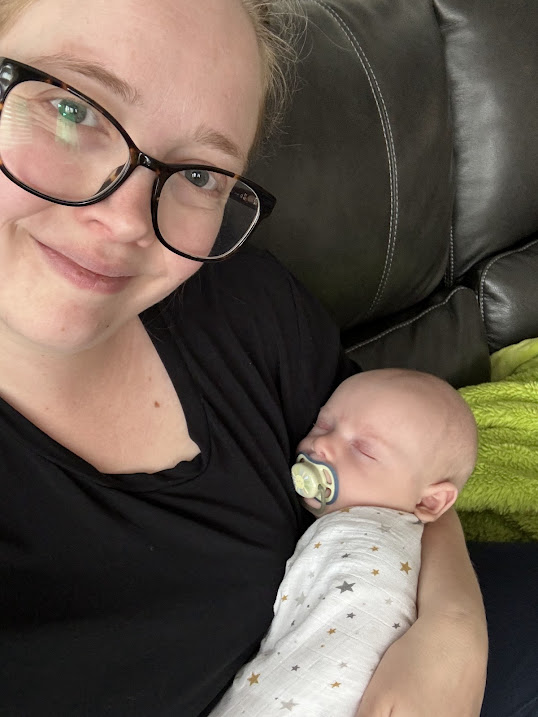“How do you find time for yourself while raising two young kids?”
I get this question almost daily, whether it’s from another mom at the playground, a friend texting me at 11 PM, or someone sliding into my DMs after seeing my Instagram stories. And every time, I wish I could give them a magic formula, a foolproof blueprint that guarantees success. But here’s the truth that took me years to accept: what works for me might not work for you, and that’s completely okay.
We’re living through unprecedented times as millennial moms. We’re the generation caught between our mothers’ advice (“just power through it”) and Gen Z’s radical self-care mantras. We’re trying to raise emotionally intelligent kids while managing our own anxiety, building careers while being present, and somehow maintaining our identities in the beautiful chaos of motherhood.

The Reality Check Nobody Talks About
Let me be real with you for a minute. There are days when my “me time” is hiding in the pantry eating chocolate chips straight from the bag. There are weeks when my self-care looks like choosing the longer line at IKEA just to have five extra minutes of peace. And there are months when I realize I haven’t done anything purely for myself since… well, I can’t even remember.
But I’ve also learned that small, consistent actions can create big changes. The strategies I’m about to share aren’t revolutionary, they’re practical, tested in the trenches of real life with real kids who have real meltdowns at the worst possible moments.
Strategy #1: The Sacred 8 PM Boundary
Both my boys are in bed by 8 PM, and this is non-negotiable. I know, I know—you’re probably thinking, “My kids would never go for that,” or “But what about activities/dinner/life?” Trust me, I’ve heard every objection because I made them all myself.
Here’s the thing: early bedtime isn’t about being strict, it’s what works. Those two to three hours between 8 PM and 11 PM? That’s where I exist as a person, not just as someone’s mom. Sometimes I use it to catch up on work, sometimes I binge-watch reality TV, and sometimes I actually have adult conversations with my partner.
Fair warning, early bedtime does mean early mornings. On a VERY good morning, the boys will sleep in until 6:30am. Most mornings 5:30am is more realistic.
Strategy #2: Partner Boundaries That Actually Work
“I need you to step in” shouldn’t feel like I’m asking for a favor, it should feel like I’m communicating a basic need. But it took me way too long to learn how to set boundaries with my partner that actually stick.
Here’s what changed everything: specificity and non-negotiation. Instead of saying “I need a break,” I started saying, “I need two hours out of the house on Saturday morning, from 9 to 11.” Instead of hinting that I was overwhelmed, I started saying, “I’m reaching burnout and need you to handle bedtime for the next three nights.”
The magic isn’t in having a perfect partner (though mine is pretty great), it’s in clear communication and follow-through. When I say I need two hours, I take two hours. I don’t come home early because I feel guilty. I don’t spend the time texting to check in every 20 minutes. I trust that my partner is capable, and I honor my own needs.
Strategy #3: Non-Negotiable You Time
Once a month, I block out time that is entirely, completely, 100% for me. Not grocery shopping without kids (that’s just efficient errands). Not getting my hair done (that’s maintenance). Not cleaning the house while no one’s home (that’s… depressing).
I’m talking about time spent doing something that feeds your soul, challenges your mind, or simply makes you happy. For me, it might be:
- Attending a local market
- Browsing a home goods store for two hours
- Meeting a friend for coffee and talking about things other than children
- Working on my paper crafts
- Simply sitting in my car in a parking lot, doing absolutely nothing
The key is protecting this time like you would a doctor’s appointment. Because in many ways, it is, it’s preventive care for your mental health.

The Guilt Factor (And How to Manage It)
Let’s address the elephant in the room: the guilt. Oh, the crushing, suffocating, ever-present guilt that tells us we’re selfish for wanting time alone, that good mothers sacrifice everything, that our kids will be damaged if we’re not available 24/7.
Here’s what I’ve learned about mom guilt: it’s not actually about our kids, it’s about the impossible standards we’ve internalized. Our kids benefit from having mothers who model self-respect, who show them that adults have needs too, and who demonstrate that taking care of yourself isn’t selfish, it’s necessary.
When the guilt creeps in (and it will), I remind myself: I’m not just raising children, I’m raising future adults who will need to know how to set boundaries, prioritize their mental health, and maintain their identities in relationships.
What This Actually Looks Like in Practice
My daily life isn’t Instagram-perfect. It’s not even Pinterest-organized. But it’s sustainable, and that matters more than perfection.
A typical day might look like:
- 6 AM – 4 PM: Full mom mode, snacks, activities, work calls, more snacks, playground, errands, dinner prep
- 4 PM – 8 PM: Family time, dinner, bath routine
- 8 PM – 11 PM: MY TIME (and yes, sometimes it’s just scrolling Instagram, and that counts)
Some weeks, my “me time” is more intentional, walking meditation, calling my friend, working on a hobby. Other weeks, it’s pure survival mode, mindless TV and early bedtime. Both are valid.

The Permission You’re Looking For
If you’re reading this hoping I’ll give you permission to prioritize yourself, here it is: You have permission to need things. You have permission to ask for help. You have permission to take up space in your own life.
You don’t have to earn the right to rest. You don’t have to justify wanting time alone. You don’t have to be grateful for the bare minimum of support from your partner or family.
Finding Your Own Formula
Remember what I said at the beginning, what works for me might not work for you. Maybe your kids are night owls and early mornings are your sanctuary. Maybe your partner travels and you need to build a support network of friends and family. Maybe you’re a single mom creating your own version of boundaries and self-care.
The point isn’t to copy my exact strategies. The point is to recognize that you deserve to exist as more than just a caretaker. You deserve strategies that work for your family, your schedule, your life.
Start small. Pick one boundary to set this week. Claim one hour for yourself this weekend. Notice how it feels to prioritize your needs without apology.
The Long Game
Here’s what nobody tells you about self-care as a millennial mom: it’s not about bubble baths and face masks (though those are nice too). It’s about building a life that includes you, not just as a supporting character in everyone else’s story, but as the main character in your own.
Our kids are watching. They’re learning from us what it means to be an adult, a parent, a person with needs and boundaries and dreams. When we model self-respect, we give them permission to respect themselves too.
So the next time someone asks how you find time for yourself, remember: the answer isn’t a formula, it’s a commitment. A commitment to believing that your needs matter, that your wellbeing affects your whole family, and that taking care of yourself isn’t selfish, it’s refilling.
You don’t have to figure it all out today. You just have to start somewhere.

The Balanced Mom
What’s one small step you could take this week to reclaim some time for yourself? I’d love to hear what works (or doesn’t work) for your family, because we’re all figuring this out together, one day at a time.

View comments
+ Leave a comment